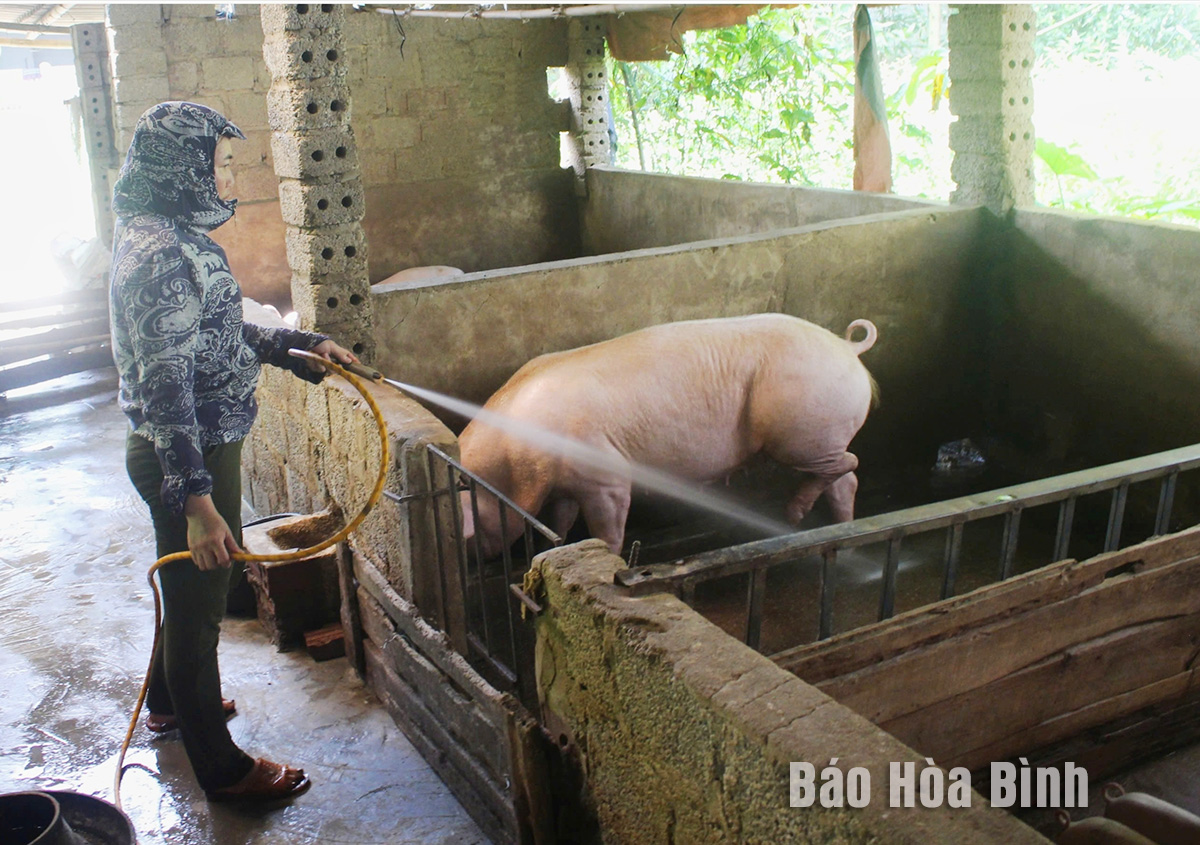
Concessional loans from the Vietnam Bank for Social Policies (VBSP) have made significant contributions to delivering Hoa Binh province’s sustainable poverty alleviation target over the past years. Thanks to the loans, thousands of jobs are generated for local workers every year, helping them improve income.
The concessional loan helps Bui Thi Phuoc in
Lien Hong 1 hamlet of Khoan Du commune, Lac Thuy district, recover pig farming.
Lac Thuy district, now certified as new-style
countryside, showcases the visible transformation of rural areas where
residents' living conditions have markedly improved. The effective
implementation of the policy credit programme has been particularly significant
in this evolution.
Nguyen Thi Hai in the Quyet Tien residential
area of Ba Hang Doi town, Lac Thuy district, exemplified the success. After
taking out a loan worth 100 million VND (over 3,900 USD) from the VBSP, she
developed cow farming that now generates over 110 million VND annually, lifting
her family out of poverty.
Similarly, Bui Thi Phuoc in Lien Hong 1 hamlet,
Khoan Du commune, revitalised her pig farming business with a 50 million VND
loan after losing her herd to African swine fever. She said the fund provided
timely support during her difficult time.
According to the VBSP Office in Lac Thuy
district, total outstanding loans in the locality now reach over 532 billion
VND, with job creation loans exceeding 95 billion VND, the highest among all credit
programmes.
Across Hoa Binh province, the funds created and
maintained employment for nearly 7,000 workers in 2024. As of January 2025,
total outstanding loans topped 5.4 trillion VND.
Dao Village’s honey – a product certified with a 3-star OCOP (One Commune One Product) rating by Thong Nhat Agricultural Cooperative in Dao Village (Hoa Binh City) – is highly regarded by consumers for its quality, richness, and variety in packaging. The distinctively sweet taste of Dao Village’s honey leaves a lasting impression on anyone who has tried it.
In alignment with Project No. 07-DA/TU, issued by the Hoa Binh provincial Party Committee on November 1, 2021, Lac Thuy district has actively promoted investment and supported the sustainable development of its industrial and handicraft sectors during the 2021–2025 period. Alongside this, the district has remained committed to preserving and revitalising traditional craft villages.
Located in the northern part of Lac Thuy district, with a temperate climate and fertile soil, Phu Thanh commune has great potential and advantages in growing tea. The long-standing experience, combined with strict adherence to organic farming practices in the tea gardens, ensures that the dried tea products from Phu Thanh and Lac Thuy as a whole are sold out immediately upon production, providing a stable and prosperous life for the local people.
Amid efforts to streamline the administrative apparatus, Hoa Binh province has intensified measures to address challenges in land clearance, resettlement support, and infrastructure investment, aiming to speed up the progress of key projects.
Hoa Binh province has posted an unprecedented economic growth rate of 12.76% in the first quarter of 2025, marking its highest quarterly performance to date and positioning it as the second fastest-growing locality in the country, trailing only Bac Giang province.
Under current regulations, products in the One Commune – One Product (OCOP) programme that are rated three stars or higher must undergo re-evaluation every three months. However, in reality, some of these products fail to consistently meet the required standards, raising concerns about the sustainability of their OCOP certification. This underscores the urgent need for producers to enhance product quality and gradually develop their OCOP products into strong, marketable brands.



